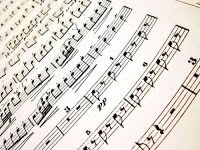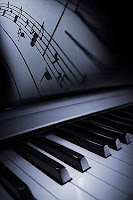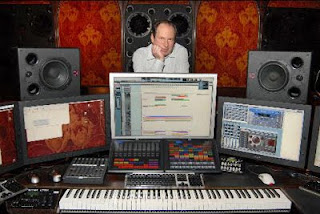 By Dan Parkes (Director)
By Dan Parkes (Director)In the previous blog we looked at the benefits of having a tailor-made score rather than production library material. But what kind of workflow can be used when getting a score written by a composer? Here are some things that worked for us:
1. Communication
Of course, it is critical to work together and discuss the project at all times, but in our case the composer lived on the other side of the country and so the entire process was by e-mail followed up by discussions on the phone. If a director is not musically-minded he will have to ensure he can efficiently communicate what is required. A director must communicate their vision but at the same time allow room for the composer's own style and artistic licence.
2. Different cuts
A composer will likely not start work until a first cut has been made. There will obviously be subsequent cuts and so it is important to keep the composer up to date as this will affect what he has to work with and in particular timing for music cues. A good naming system is essential to avoid confusion.
3. How much?
An easy mistake that novice directors and composers can fall into is scoring too much of the film. There can be more power in silence. During initial discussions the director should impart their vision of where music is necessary or unnecessary. It may also be a good idea to leave that decision to the composer, who may come up with some surprises. Nevertheless it is important to allow the composer an opportunity to see the entire film regardless, so they have context.
 4. Workflow
4. WorkflowWe had already divided the film into five 'reels' and we used this system with the composer. We would send through specific sections of the film that required scoring using a small compressed Quicktime file that was labelled and had timecode, so that it could then be used to help sync the music with the finished picture. The composer would then send back the same video but along with a preview of the music he had scored so we could see it against picture.
5. Temp tracks /scratch music
It is not uncommon for editors to use temp tracks when cutting a film. A temp track is an existing piece of music that helps set the pace and mood of a scene, giving the composer an indication of what will work. Composers often find temp tracks frustrating as it limits their creativity, but sometimes they are necessary when it is difficult to express in words what music will work, or when timing and pace needs to be established before a score is written.
6. Rushes/rough mix It is prudent for a composer to come up with musical 'sketches' first before composing or orchestrating the piece to completion. These can also be used with the early cuts of the film, with test audiences, to see what is working. However this does call for an understanding that it is there to give a rough idea of how it could work, rather than being a finished piece -we can prove difficult for those lacking in imagination to comprehend!
 7. Master/final mix
7. Master/final mixOnce a rough preview of the music has been decided upon the composer can then fully orchestrate it and send high quality master files (in our case 48K WAV files) which will then be edited and mixed into the final edit. We used DropBox rather than YouSendIt etc to exchange the files and found it to be an excellent system.
You can hear the award nominated score to Ambleton Delight at the following link:
http://www.ambletondelight.co.uk/music.html







